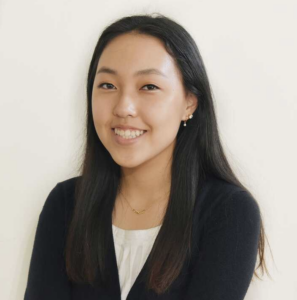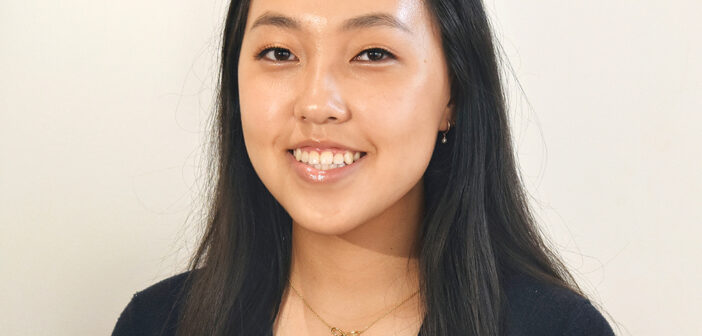
Sharon Jo
It’s hard to answer people when they ask me why I chose to do journalism. Not because I can’t think of any reasons, but because there are too many to choose from. Since this is a question that I am asked quite often and since a simple conversation is not enough to explain it all, I decided to write it down.
When the daunting deadlines and stress of other classes filled my thoughts and sped up my days, I found myself losing focus. I forgot the inspiration that led me to journalism and let myself grow discouraged. After all, there were future engineers, doctors and businessmen to whom I could compare myself at this school.
But when I look at the world and the variety of problems in which I wish to see change, I realize that this change cannot occur without people actively working toward it and allowing the rest to see what is happening — and doing so truthfully.
After speaking with a source for one of my articles, the source said to me in a follow up email, “I thank you for getting the information to your readers. What you do matters and saves lives, because they become more informed regarding their decisions.”
Then I remembered why.
I recalled my earliest memory of truthfully describing to someone what I wanted to do with my life in the future. I thought of the heartache felt while reading news stories about people being oppressed or when some voices and perspectives were left out.
As an Asian American, and as a woman, I felt that too many voices were not heard and were failed to be recognized as important.
If America is as free as it claims to be, this would be an easy task, and perhaps done a long time ago. But it’s not, and I wish to be a part of what makes it possible.
Writing and media are the tools I’ve selected to use in the platform and voice I am privileged to have, and I made it my personal duty to utilize it to provide for those who are not able. Democracy and freedom is made possible through journalism.
For those that have come to know me, even a little bit, they also know of another passion and outlet of mine. The effectiveness of journalism doesn’t stop at writing, but it is also made up of various forms of media, including photography, my favorite part.
Journalism encompasses everything I love to do and enjoy: the stories, the creativity, the information and the strength it possesses when they are all brought together. With photos, I am able to express what words cannot. It allows another side of the truth to be told and captures the raw moments that are illustrated through the lens.
When most people think of journalism, a printed newspaper is often the first thought that comes to mind and they immediately dismiss the image, believing the concept to be dead and not a necessity anymore.
Though it is something others spend their lives fighting for, the news and access to knowledge is so commonly taken for granted in America. But what would we do without it?
While digital media quickly replaces all else in print, journalism grows along with it, being able to reach a far greater audience. Journalism is constantly evolving, and at Lehigh, we are learning to be effective with our work to evolve and grow as the need for knowledge does as well. Journalism students are taught history, laws, ethics, media, communication and more — all valuable but often overlooked components.
As I am able to work hard toward achieving my goals, I will be constantly reminded of why this journey began, so that I may be a part of the change and raise the voices of those who matter but are not seen. For now, I will be learning and studying and growing.






Comment policy
Comments posted to The Brown and White website are reviewed by a moderator before being approved. Incendiary speech or harassing language, including comments targeted at individuals, may be deemed unacceptable and not published. Spam and other soliciting will also be declined.
The Brown and White also reserves the right to not publish entirely anonymous comments.
3 Comments
Remember to not dismiss Conservative voices and injecting your personal beliefs when reporting. If you choose to do so, then label it an opinion piece and not honest journalism.
Ms. Jo writes: “Journalism encompasses everything I love to do and enjoy…” . I would think that finding stories and creating editorials are more exiting than strict reporting, and more prone to bias
Your point is well taken although the line between “honest journalism” and bias may be vague on a case by case basis. This line probably moves depending on the readers perception.
“The Brown and White regularly publishes unsigned editorials commenting on university news and current events. Views expressed in these editorials reflect the majority opinion of the editorial board and serve as the official opinion of the Brown and White.” This modus operandi along with selection of stories to be reported might result in bias. “The newspaper (The Brown and White, B&W) covers Lehigh University news and the surrounding Bethlehem area, and it aims to serve as a platform for conversation and idea exchange.” Not seeing any other mission statement for B&W, “honest journalism” is not a given although I am sure the B&W staff usually strives for it.
God bless journalists.
“In case you forgot, what we do matters.”: indeed it does and thoughtful people have not and will not forget it.
“Journalism encompasses everything I love to do and enjoy: the stories, the creativity, the information and the strength it possesses when they are all brought together. With photos, I am able to express what words cannot. It allows another side of the truth to be told and captures the raw moments that are illustrated through the lens.” This implies the question what is the truth. A picture is said to be worth a thousand words but sometimes another side of the truth is ultimately a mis-representation: “Washington Post settles $250M lawsuit with teen in a MAGA hat”. The pursuit of the TRUTH must not devolve into the promotion of the AGENDA. Agenda may include pandering to an audience for ideological or financial reasons.
“I recalled my earliest memory of truthfully describing to someone what I wanted to do with my life in the future. I thought of the heartache felt while reading news stories about people being oppressed or when some voices and perspectives were left out.
As an Asian American, and as a woman, I felt that too many voices were not heard and were failed to be recognized as important.” Journalism should satisfy these desires.